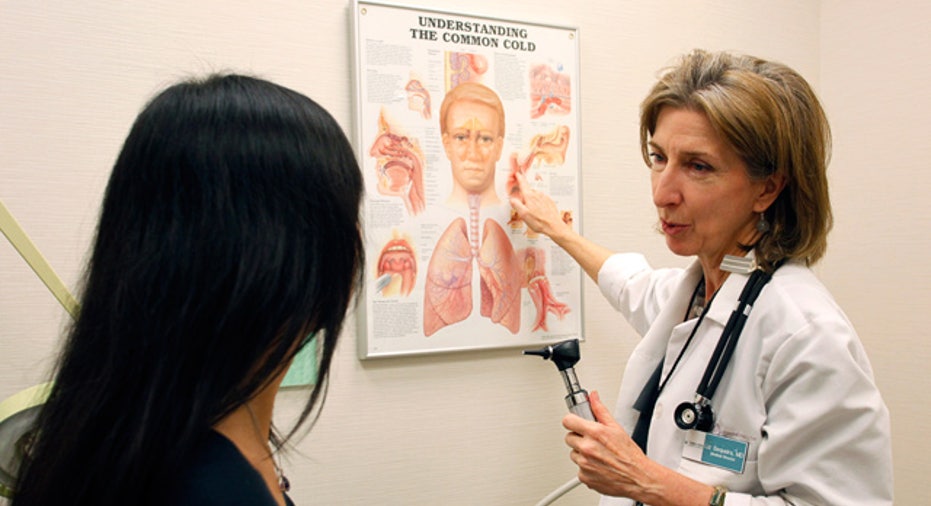Personalized Medicine Game Changer on Drug Creation, Distribution

Technological innovations and compelling science have accelerated the understanding of human genetics, and experts expect the developments to usher in increased biomedical research and a clinical paradigm, resulting in more personalized medicine.
Genomic DNA sequencing has led pathologists to seek out biomarkers that reveal large numbers of proteins and genetic patterns in the blood, urine or tissues or saliva extracted from the cheek to uncover one million SNPS, or DNA sequence variations. Screening tests like these personalize medicine by signaling disease predisposition, identifying preventive strategies and targeting therapies to fight disease.
Personalized medicine is already improving treatment and survival for a variety of illnesses, including depression, coronary and peripheral artery disease, and cancer.
In 2011, the Personalized Medicine Coalition (PMC) reported the availability of 72 prominent examples of personalized medicine drugs, treatments and diagnostics products, an increase from 13 in 2006. The CDC says 33 pharmacogenomic biomarkers are included on FDA-approved drug labels.
The AEI-Brookings Institute reports 17,000 strokes could be prevented each year if genetic testing is used to properly dose the blood thinner warfarin. According to Ashley Dombkowski, chief business officer at 23andMe, warfarin is implicated in about one-third of visits to the emergency room.
The PMC claims breast cancer patients would experience a 34% reduction in chemotherapy use when women with breast cancer undergo genetic testing prior to treatment. These tests place patients into risk categories that inform physicians and patients whether the cancer may be treated successfully with hormone therapy alone, avoiding the expense and toxic effects of chemotherapy, or whether more aggressive treatment is needed because of the risk the cancer will eventually spread.
Improved cancer therapies
Pfizer’s “It’s Personal” program educates patients about how personalized medicine is improving cancer treatment. Oncologist Rob Sweetman, Pfizer’s senior director of medical affairs, claims “the pharmaceutical industry is developing medicines that can take advantage of the molecular signature of a tumor.” Targeted drugs can lead to improved patient response when compared to “unselected” therapies.
As recently as 10 years ago, lung cancer patients were all treated with unselected chemotherapy following an abnormal chest X-ray and biopsy, Sweetman says. “The five-year survival rate for all patients was 15% and for the most advanced Stage Four lung cancers, only 6%.”
But substantial tumor responses were observed during clinical trials in patients whose lung tumors were positive for the ALK gene rearrangement, which led to the August 2011 approval of Xalkori, a drug to treat certain patients with late-stage (locally advanced or metastatic) non-small cell lung cancers. “Over 60% of the tumors showed partial or complete response, and more than 90% of tumors had some shrinkage,” Sweetman says.
Patients suffering from other types of cancers are also benefitting from new options.
Putting together the Pieces
“In oncology there are drivers that accelerate a real alignment of incentives among doctors, payers and patients,” says E. Robert Wassman, chief medical and genomics officer at Generation Health (GH), in which CVS/Caremark, one of the country’s largest pharmacy benefit managers (PBM), owns a majority stake.
Wassman claims personalized medicine helps to differentiate patients and identify those who should be on an expensive new therapy because they will experience positive health outcomes versus those who will experience toxic side effects or demonstrate no productive result.
CVS/Caremark alerts GH of prescriptions that may suggest the need for a genetic test. An at-home saliva test is recommended to a physician and patient who collaboratively decide whether or not to test to identify any potential genetic variants that could interfere with the efficacy or safety of a prescribed drug.
Beyond oncology, drug test pairs represent additional clinical utilities with drugs like Coumadin (warfarin) or Plavix. For example, genetic variations or high-risk genotypes can cause poor metabolization with Plavix, resulting in death, heart attack and stroke.
According to Generation’s 2010 economic models, for one million members, $11 million is spent each year on 15 drugs to which patients not only do not respond but also are likely to have drug-related medical complications.
While the clinical utility of alternate therapies applies to a relatively small demographic compared to the general population, the system (and therefore the bulk of the population) experience cost savings when a patient can safely and effectively be moved to a more appropriate generic or specialty drug, Wassman says.
The direct-to-consumer market
By introducing genetics in creative ways, personalized medicine is now accessible directly to consumers. At 23and Me, for example, subscribers pay a $200 first-year subscription and $9-a-month thereafter, for an at-home kit for a saliva sample, says Dombkowski. Members return the sample to a licensed laboratory and an electronic genetic profile is sent back to the member within a few weeks.
Dombkowski says users often come to the site to learn more about their ancestry and end up with medical information that fosters drug compliance and saves lives.
As important is the ongoing electronic link between a member’s genetic profile and the latest scientific results. Furthermore, members answer health surveys to accelerate the next generation of personalized medicine discoveries via crowd sourcing.
That technology driver is at the heart of all personalized medicine, PMC president Dr. Edward Abrahams says.
In 2015, penalties will be levied on hospitals and physicians who fail to use health IT and incorporate molecular information and link a personal genomic sequence to every patient’s electronic health record.
Currently, though, a 2012 UnitedHealthcare-commissioned survey says only 7% of physicians say they are “very knowledgeable” about personalized medicine and 16% say they are “not knowledgeable.”
While complex biology and the need to establish accepted economic models that benefit a more widespread demographic limit personalize medicine to sporadic use, says Edwards, proponents look to a brighter future.
“It takes baby steps,” says Sweetman, envisioning seamless adoption and a time when the practice of personalized medicine becomes “’just medicine.’”



















